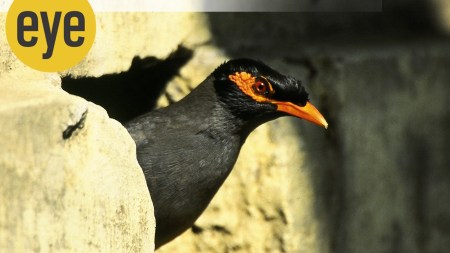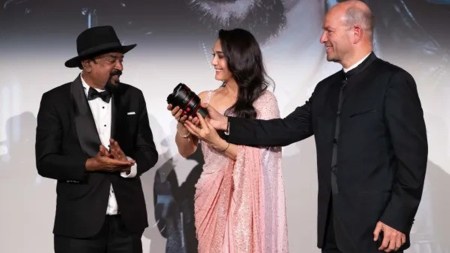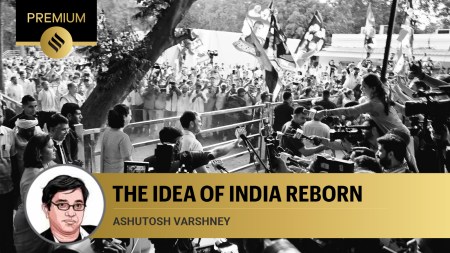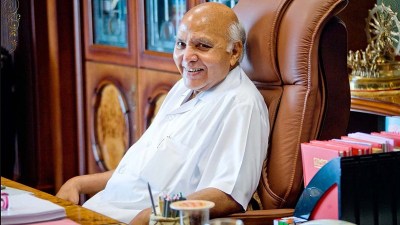- India
- International
Farooq Shaikh’s 71st birth anniversary: An indispensable star who had no wish to be remembered
Investing each of his roles with what Amitabh Bachchan described as “quiet honesty,” the late star of Chashme Buddoor and Saath Saath, who died of a heart attack in 2013, embodied the boy-next-door.
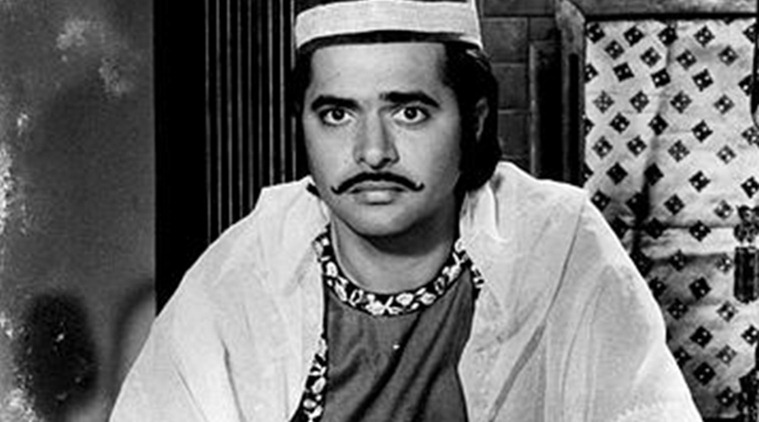 Farooq Shaikh never wanted to become a typical Bollywood hero. (Source: Express Archive)
Farooq Shaikh never wanted to become a typical Bollywood hero. (Source: Express Archive)
Despite being conventionally handsome and charming in ways that would have made him a natural fit in the singing-dancing world of Bollywood, it is puzzling why Farooq Shaikh gravitated towards middleclass-ness in his best-known films. Not that he didn’t sing and dance, but certainly it wasn’t the kind that could be bracketed under ‘mainstream Bollywood.’ His most popular songs are meaningful, frequently penned by/sourced from well-regarded poets and did not require the dancing skills of Jeetendra and Sridevi. Think of “Tumko dekha”, “Zindagi jab bhi” or “Phir chiddi raat”.
Farooq Shaikh revealed a rare ability to deflect attention or spotlight from himself. Perhaps, that could be the reason why the bashful Shaikh never wanted to become a typical Bollywood hero, because a Bollywood hero is a specimen who, above all, has to be a pro at self-love and vanity. Shaikh, on the other hand, was too dismissive of his (enormous) talent and never known to be in love with his own image, like the good ol’ Narcissus. He liked referring to his own films by mentioning his co-stars, avoiding his own name as though he wasn’t a part of them at all. And such a man had no wish to be remembered for his legacy, either. “Everyone comes into and goes from this world,” he once said. “I have no great desire to be remembered after I am gone.”
Ironically, he didn’t want to be remembered. However, the film world and especially lovers of middle-of-the-road cinema refuse to forget him. Somewhere between lies the story of Farooq Shaikh.
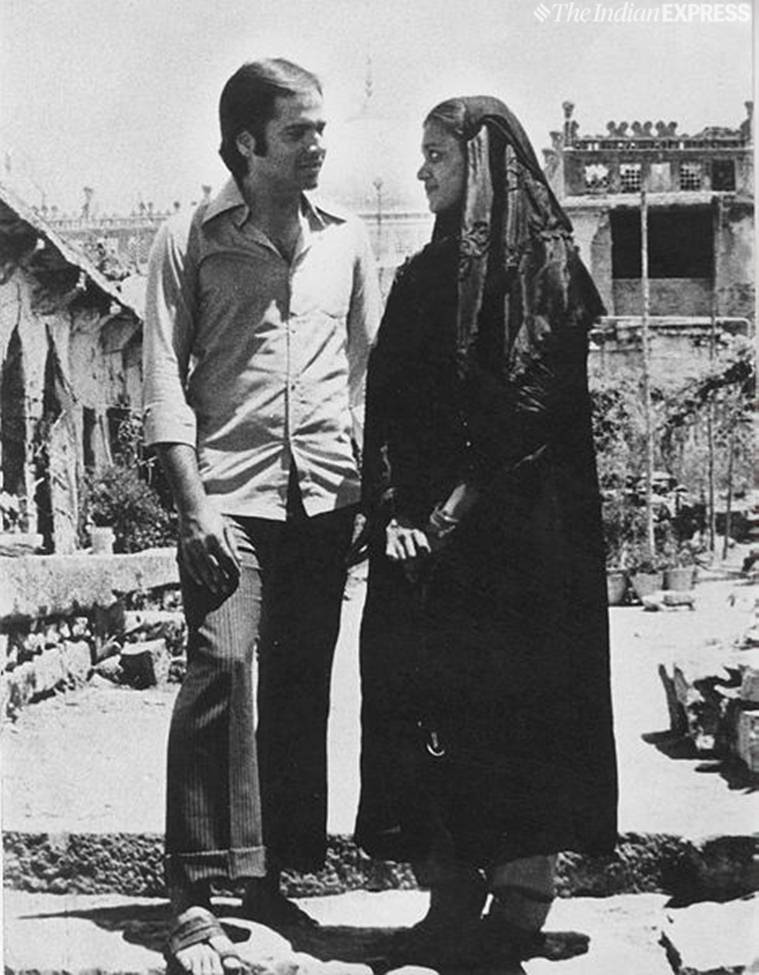 Farooq Shaikh and Supriya Pathak in Bazaar. (Source: Express Photo)
Farooq Shaikh and Supriya Pathak in Bazaar. (Source: Express Photo)
The Everyman
Whether playing taxi driver Ghulam arriving in Bombay like thousands of migrants leaving behind his new bride and ailing mother back home in Uttar Pradesh in Muzaffar Ali’s Gaman (1978) or the studious and sincere roomie to the smart-alecky majnus (Ravi Baswani and Rakesh Bedi) in the cult Sai Paranjpye-directed Chashme Buddoor (1981), Farooq Shaikh was Hindi cinema’s Everyman, much like Amol Palekar, his colleague from Hrishikesh Mukherjee’s Rang Birangi (1983). Investing each of his roles with what Amitabh Bachchan described as “quiet honesty” the late Shaikh, who died of a heart attack in 2013, embodied the boy-next-door. Many fans who grew up in the 1980s when Farooq Shaikh was at his apogee often sum up his screen persona as “Mr Nice.” Given the tributes that fanboys and filmmakers continue to pay to Shaikh and the kind of bittersweet films he was associated with, only goes on to prove that old habits die hard. Consider, for instance, a proliferation in remakes of Shaikh starrers like Chashme Buddoor and Katha or odes to his songs, first in Sachin Kundalkar’s Aiyyaa (a character sings “Tumko dekha” even though the leading woman played by Rani Mukerji doesn’t know who Farooq Shaikh and Deepti Naval are) and more recently, Ritesh Batra’s Photograph in which the title song of Noorie plays in the background, giving protagonist Rafiuallah (Nawazuddin Siddiqui) the idea to name his fake fiancé as Noorie.

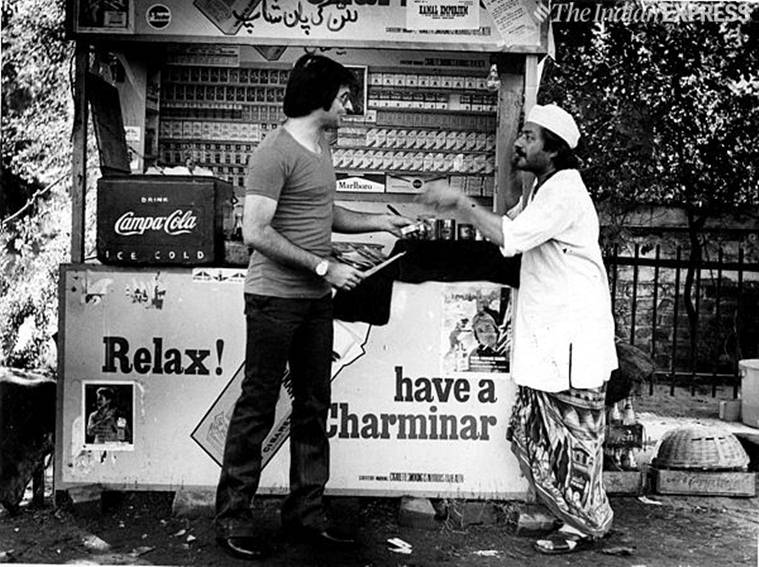 Farooq Shaikh and Saeed Jaffrey in Chashme Buddoor. (Source: Express Archive)
Farooq Shaikh and Saeed Jaffrey in Chashme Buddoor. (Source: Express Archive)
Gaman: His angriest turn, yet
Trained to be a lawyer, Farooq Shaikh was born into a prosperous landowning family in Gujarat. His first break came in 1973’s landmark Garam Hava, an agonizing account of the Partition. Seeing his potential, Muzaffar Ali gave him one of his earliest career-defining roles, as the cabbie Ghulam in Gaman (1978) opposite Smita Patil. The film chronicles Ghulam’s journey to Bombay to make a living and support his impoverished family back in his village in Uttar Pradesh. The song “Seene mein jalan”, picturised on Shaikh as he drives around Bombay in his Padmini Premier cab, is the most trenchant commentary on the coldhearted and unstoppable spirit of the island city. Written by Shahryar to Jaidev’s composition, it has become an anthem for all that Bombay stands for – the everyday cruelties, joyless existence, the frustrations, warts and all. Wistful close-ups on Shaikh and the timely flashbacks to his wife waiting for him in the village underscores the crushing bitterness that the city can thrust on a migrant. This may well be the easygoing star’s angriest role, yet. Shaikh would go on to form a successful team with the aristocratic Muzaffar Ali, a former ad-man, sometimes fashion designer, part-time filmmaker and full-time Sufi. Besides Gaman, Ali’s Umrao Jaan, in which Shaikh appears as a Nawab in love with the enchanting courtesan played by Rekha, is a fan favourite.
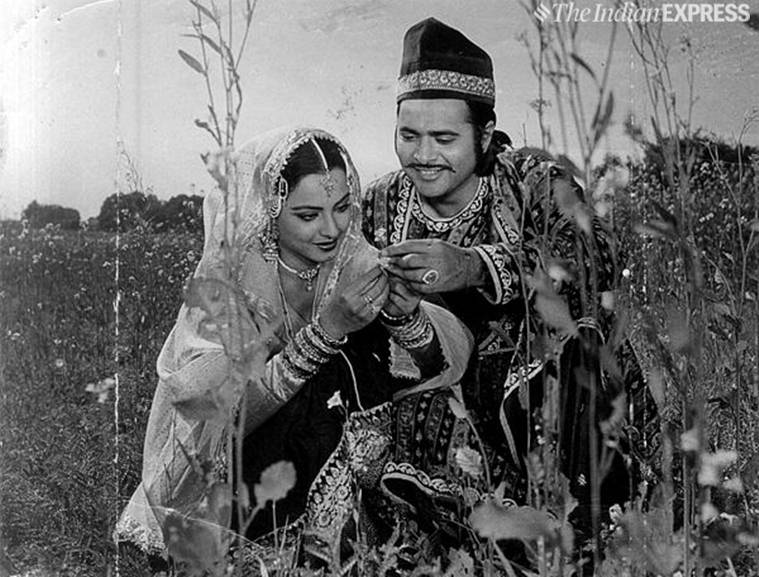 Farooq Shaikh with Rekha in Umrao Jaan. (Source: Express Archive)
Farooq Shaikh with Rekha in Umrao Jaan. (Source: Express Archive)
One of Shaikh’s most unusual roles came in 1983’s Katha. Who would have thought of turning this boyish face into an antagonist? Shaikh plays the hare version of the tortoise-hare parable (actually based on a Marathi play) in this Sai Paranjpye comedy. As a boastful but nevertheless smooth-talking Bashu, he is the perfect foil to the timid and under-confident Rajaram (Naseeruddin Shah). Interestingly, Shaikh once shared the following exchange from the sets of Katha. “If Naseer and I are in same shot, it will be my face to the camera and Naseer’s back,” Shaikh recalled. To which Naseeruddin Shah, ever the firebrand, replied, “Yeah, because my back is more expressive than your face.” (Maybe, if Naseeruddin Shah revisits Gaman he might change his mind.) Once again, Shaikh’s heroine in Katha was the svelte Deepti Naval. They worked together in half a dozen hits, including Saath Saath, Chashme Buddoor and paired up more recently in Listen… Amaya as an older couple, prising open a large box of nostalgia and memories.
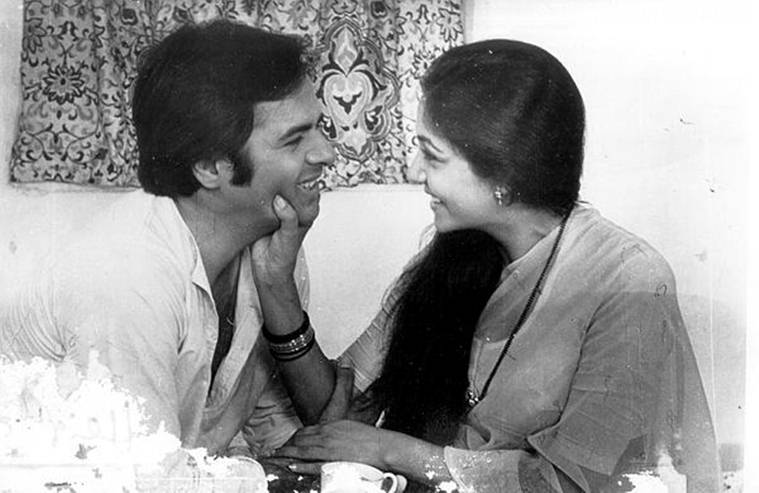 Farooq Sheikh and Deepti Naval in Saath Saath. (Source: Express Archive)
Farooq Sheikh and Deepti Naval in Saath Saath. (Source: Express Archive)
In his second innings, Shaikh appeared as a gentle host of the TV show Jeena Isi Ka Naam Hai, interviewing celebs with his trademark “sharafat” and old-world grace. His turn as a sports coach in Lahore (2010) won him a National Award for best supporting actor. But it was Dibakar Banerjee who offered him one of his most memorable late-career roles in the political thriller Shanghai (2012). In his brief turn as a typical Indian bureaucrat in Shanghai, he proved he still had it in him. Sadly, except a smattering of side roles, few directors showed any willingness to explore the veteran’s true potential neither did Shaikh, who kept himself away from cliques and camps, make an effort for renaissance.
Those who knew him confirm that he was disarmingly soft-spoken and friendly but fiercely private. His undying “passion for food” was his only vice. Not to mention, his love for the Urdu language. On the sets, fellow actors and colleagues had got used to spotting this senior star poring over a book in a corner quietly (obviously, once the scene was done). Often, to interviewers, he spoke in Urdu, mesmerising the listeners with his wit, reasonable and understated opinion and Urdu vocabulary.
When he died in 2013, a heartbroken Deepti Naval, unable to mask her shock at his untimely death at 65, said, “Some people are indispensable. He was one of them.” She meant indispensable ‘as a friend’, but you could just as easily extend that to Farooq Shaikh’s inimitable presence on Hindi screens of the 1980s.
(Shaikh Ayaz is a writer and journalist based in Mumbai)
Click for more updates and latest Bollywood news along with Entertainment updates. Also get latest news and top headlines from India and around the world at The Indian Express.
Photos
Jun 08: Latest News
- 01
- 02
- 03
- 04
- 05


